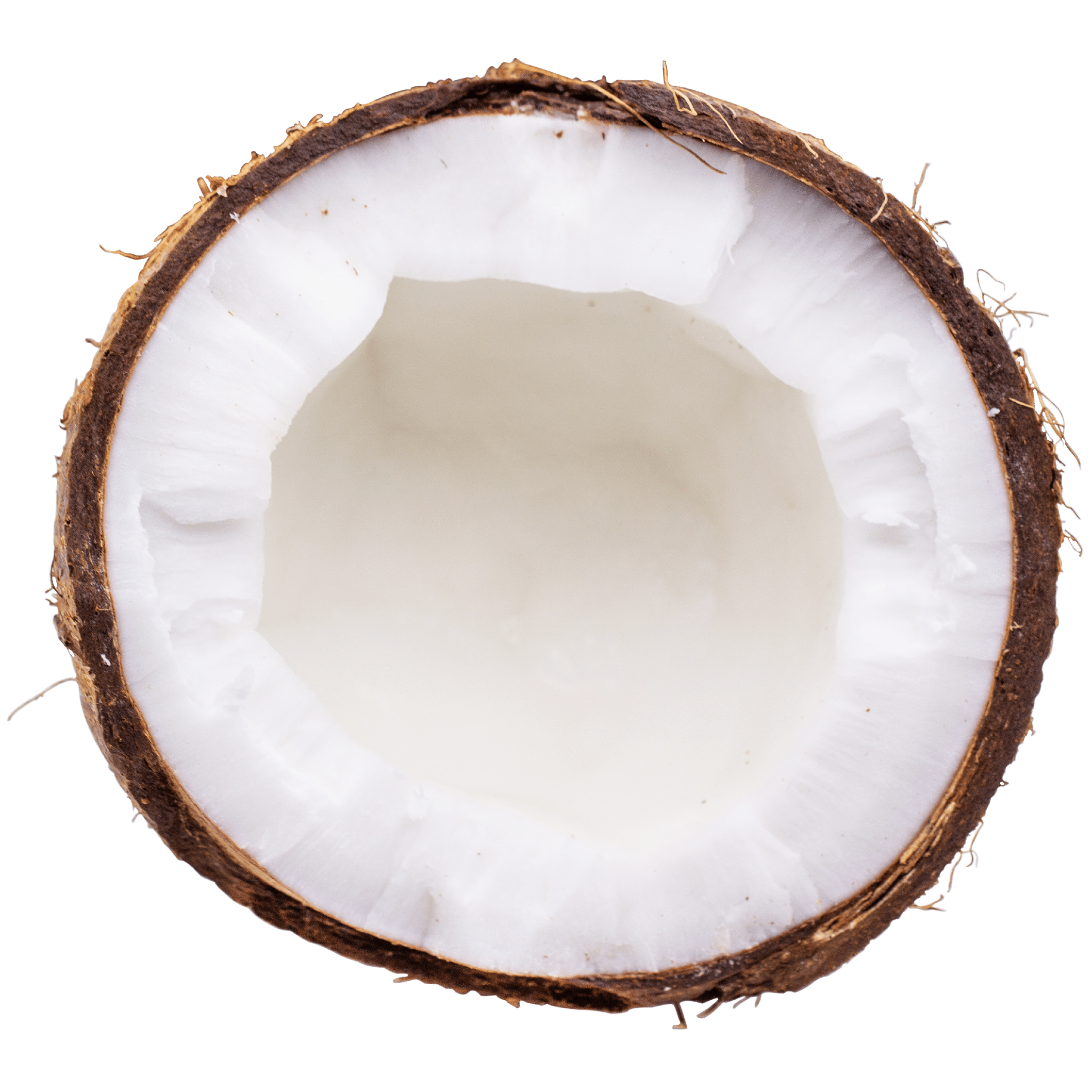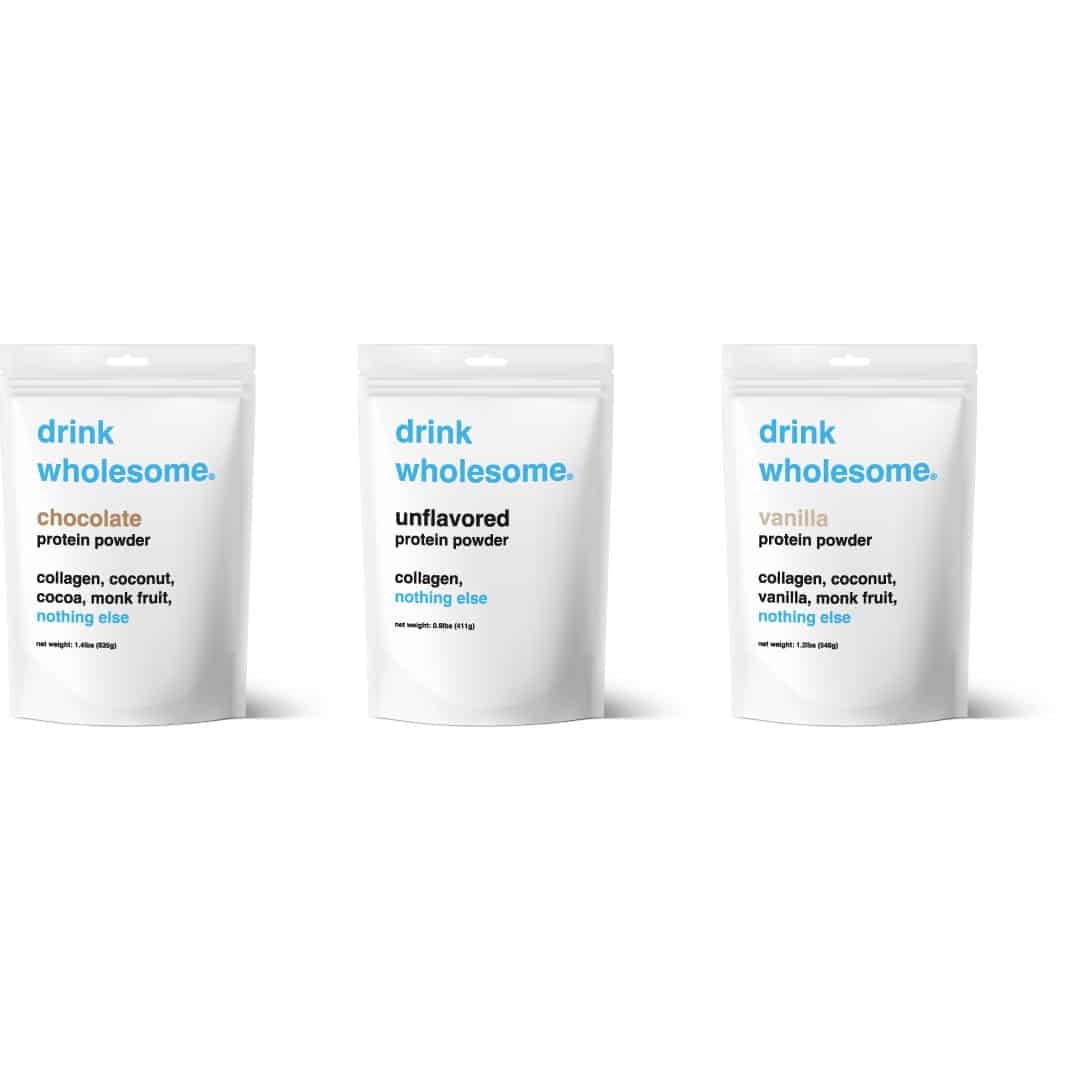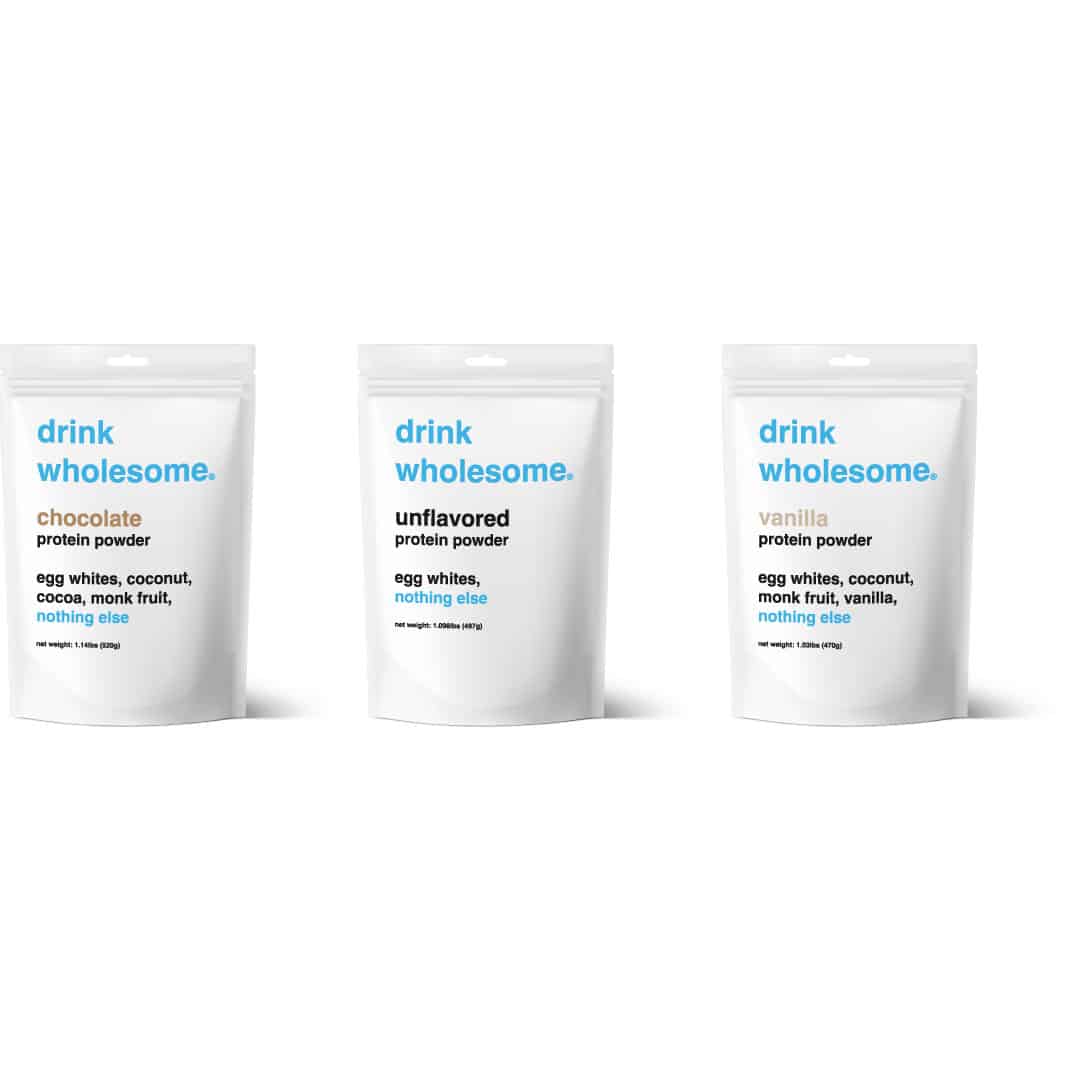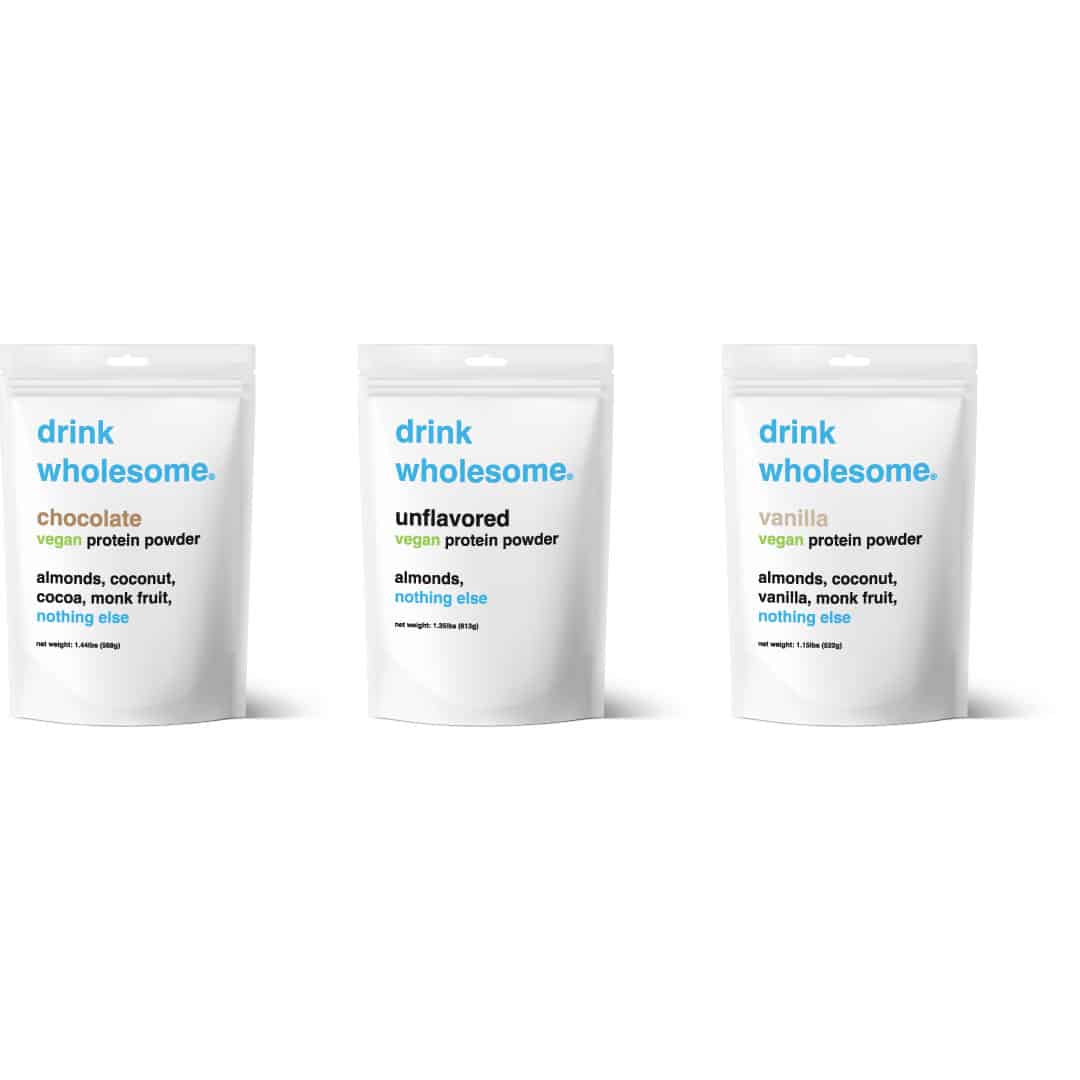What is the best protein powder for constipation?
If you are looking for the best protein powder for constipation, you have come to the right place. Learn how to supplement your dietary protein intake without upsetting your stomach.
Protein powder and constipation
Does protein powder make you constipated?
Although a common side effect of protein supplements is diarrhea, many people also find that protein powders cause constipation. Protein powder constipation occurs when you have fewer than three bowel movements a week and your poop is hard and difficult to pass. Other symptoms include bloating and stomach pain. Although protein powder constipation affects millions of people every year, it is easily avoidable if you know what ingredients to look out for.
It is worth noting that although protein powder can cause constipation, dietary protein plays an important role in maintaining digestive health and supporting regular bowel movements. For starters, protein is needed for the production of digestive enzymes, which help you break down food. Without adequate protein intake, you would not be able to produce enough digestive enzymes.
Protein is also essential for maintaining a healthy gut microbiome. The gut microbiome consists of trillions of bacteria that help break down complex carbohydrates and fiber, producing short-chain fatty acids that nourish the cells lining the colon. Dietary protein supports the growth of these gut bacteria, ensuring a well-functioning digestive system.
Basically, if you are struggling to meet your protein needs, adding a protein powder to your diet can actually improve your digestive health. That said, not all protein powders are created equal, and some may do more harm than good.
What causes protein powder constipation?
There are two types of ingredients that tend to cause protein powder constipation. The first is dairy-based proteins like whey and casein. The second is food additives like emulsifiers, thickeners, flavors, and sugar substitutes. To put it simply, both dairy-based proteins and food additives are hard to digest, which can cause a number of GI (gastrointestinal) side effects, including constipation.
There are several other factors that can contribute to protein powder constipation. Here are a few of the most common:
1. Low fiber intake: Insufficient dietary fiber intake can lead to constipation. Fiber adds bulk to the stool, making it easier to pass. Make sure to include fiber-rich foods in your diet, such as fruits, vegetables, and whole grains.
2. Dehydration: Dehydration can contribute to constipation as it results in dry, hard stools. Make sure you drink enough water throughout the day to stay hydrated. You may also need extra electrolytes to ensure proper hydration, especially if you live an active lifestyle.
3. A sedentary lifestyle: A lack of physical activity can slow down intestinal contractions and contribute to constipation. Make sure to exercise regularly to promote healthy bowel movements.
4. Medication: Certain medications, such as pain relievers, antidepressants, and iron supplements, can cause constipation. If you are experiencing constipation while taking any medication, consult your healthcare provider for possible alternatives.
5. Poor gut health: Bacterial imbalances in your gut, such as small intestinal bacterial overgrowth (SIBO), can disrupt normal gut motility and lead to constipation. If you suspect SIBO or other bacterial-related issues are contributing to your constipation, consult with a healthcare professional for a proper diagnosis.
Understanding all of the possible causes of protein powder constipation is essential for effective management. Protein powder can certainly contribute to constipation, but constipation is usually caused by a number of factors, including those outlined above.
What is the best protein powder for constipation?
The best protein powder for constipation is additive and dairy-free. By avoiding these two common triggers, you can considerably reduce the likelihood that your protein powder makes you constipated. The best protein powder for constipation is also high in fiber.
Fiber rich protein powders can help relieve constipation. Dietary fiber, also known as roughage, is the indigestible part of plants. Unlike other nutrients, it is not broken down and absorbed by the body. Instead, it passes through the digestive tract relatively intact, speeding up digestion by adding bulk to the stool.
In the United States, foods that contain at least 2.5 grams of fiber per serving are considered a “good source of fiber,” and those containing 5 grams or more of fiber per serving are considered “high fiber.” If you are looking for constipation relief, pick a protein powder with at least 5 but no more than 10 grams of fiber per serving. Eating less than 5 grams of fiber may not help normalize your bowel movements, whereas eating more than 10 grams of fiber may cause bloating or diarrhea.
Our vegan protein powders have 5-8 grams of fiber per serving. Most protein supplements, on the contrary, do not contain much (if any) fiber because they are made with protein concentrates and isolates, which have been stripped of everything but the protein. A few companies add fiber to the formulas, but often do so in a way that is utterly unnatural.
One popular brand, for example, adds guar gum to its protein powder to give it a whopping 20 grams of fiber per serving. Not only is this way too much fiber for one sitting, but guar gum is notorious for causing digestive issues. In case you were wondering, the fiber in our vegan protein powders comes from whole almonds.
drink wholesome is the best protein powder for constipation
drink wholesome is additive-free
The main reason why we make the best protein powder for constipation is that we do not use food additives. Many other protein powders, on the other hand, are full additives like emulsifiers, thickeners, artificial sweeteners, and flavors.
Our ingredients

egg whites

coconut

vanilla

monk fruit
NOT our ingredients
-
acacia gum
-
acesulfame potassium
-
artificial flavors
-
carrageenan
-
erythritol
-
guar gum
-
inulin
-
maltodextrin
-
'natural' flavors
-
silica
-
soy lecithin
-
sucralose
-
xanthan gum
-
xylitol
Because they look nothing like real food, food additives are hard to digest and spend extra time in your gut. As a result, they feed your hungry gut bacteria, which produce gas as they eat. Gas, specifically methane gas, slows colonic transit (the amount of time it takes food to travel through the colon), which can lead to constipation. Exactly why this happens is still a mystery, but researchers believe that intestinal gas may reduce intestinal motility, thereby slowing the movement of food.
Here is a list of the most common food additives in protein powder:
acacia fiber, acacia gum, acesulfame potassium, artificial flavors, ascorbic acid, aspartame, calcium carbonate, carrageenan, cellulose gum, dextrin, dicalcium phosphate, dipotassium phosphate, erythritol, gellan gum, guar gum, gum arabic, inulin, locust bean gum, maltodextrin, mono- and diglycerides, ‘natural’ flavors, rice bran extract, rice dextrin, rice hulls, rosemary extract, silica, silicon dioxide, sodium alginate, sodium bicarbonate, soluble corn fiber, soy lecithin, sucralose, sunflower lecithin, tocopherols, tricalcium phosphate, xanthan gum, xylitol, zinc oxide
drink wholesome is dairy-free
Dairy-based proteins like whey and casein, although not an issue for everyone, can cause side effects like constipation. This is in part because they contain lactose, a sugar most adults cannot fully digest.
drink wholesome is made with real foods
A final reason why we make the best protein powder for constipation is that we do not use protein concentrates or isolates. Most protein powders are made from one or both of these protein sources, which have been mechanically and or chemically stripped of everything but the protein, including the enzymes, fiber, and other natural digestive aids that help you break them down. As a result, they can cause digestive issues like constipation.
Instead of using protein concentrates or isolates, we use whole foods like collagen, egg whites, and almonds. Protein sources like these are easy to digest and absorb. Whole food protein sources also have unique digestive benefits: collagen can reduce bloating and improve digestive symptoms, egg whites can help restore your mucosal intestinal barrier, and almonds can improve the composition of your gut microbiome.
It follows that my customers experience fewer digestive issues with our protein powder than with any other type of protein supplement. Order samples to see for yourself.
Tips from a registered dietitian
When it comes to maintaining digestive health while supplementing with protein powder, incorporating the following tips can make all the difference when it comes to your gut health. Here are a few insights and recommendations from Registered Dietitian Brittany Adelman:
1. Stay hydrated: Proper hydration is crucial for healthy digestion. Make sure to drink plenty of water throughout the day, especially when consuming protein powder. Aim for about one-half of your body weight in ounces of water daily to keep your digestive system running smoothly. For example, if you weigh 150 pounds, you would need to drink a minimum of 75 oz of water per day, and 1 additional 8 oz glass for every caffeinated beverage you consume.
2. Choose high-fiber options: Look for protein powders that contain added fiber or consider adding fiber-rich foods such as fruits, vegetables, and whole grains to your shakes or smoothies to increase the fiber content. Fiber helps promote bowel regularity and can counteract the potential constipation-causing effects of protein powder.
3. Introduce protein powder gradually: If you are new to using protein powder, it is important to introduce it into your diet gradually. Start with a smaller serving size and observe how your body responds. Slowly increase the amount over time to allow your digestive system to adjust.
4. Balance your diet: While protein powder can be a convenient source of nutrition, it should not replace whole foods in your diet. Ensure you are consuming a well-rounded, balanced diet that includes a variety of nutrient-rich foods such as lean meats, fruits, vegetables, and whole grains.
5. Stay active: Regular physical activity plays a vital role in maintaining healthy digestion. Engage in a variety of exercises, including aerobic activities, strength training, and flexibility exercises to support optimal digestion and bowel movements.
By incorporating these expert tips into your protein powder regimen, you can enjoy a positive protein powder experience and minimize the risk of constipation.
When to seek medical advice
If you are experiencing constipation and finding it difficult to find relief using home remedies and lifestyle changes, it may be time to seek medical advice. While occasional constipation is common and usually goes away on its own, certain situations may warrant professional intervention. Seek medical advice for constipation if:
1. Your constipation lasts for more than a week
2. You are in severe pain or discomfort
3. You have sudden changes in bowel movement habits
4. Your constipation is accompanied by unexplained weight loss
5. You have noticed a presence of blood in your stool
6. You have a history of gastrointestinal disorders
7. You are experiencing other unusual or concerning symptoms
It is important to remember that seeking medical advice does not necessarily mean you have a serious condition. Your healthcare provider will be able to evaluate your symptoms, perform any necessary tests, and provide guidance and treatment options based on your individual situation.
3 constipation-friendly smoothie recipes
Blueberry Cauliflower Smoothie
Ingredients:
- 1 cup frozen cauliflower florets
- 1/2 cup blueberries
- 1 tablespoon chia seeds
- 1 tablespoon psyllium husk
- 1 serving of drink wholesome vegan vanilla protein powder
- 1 cup unsweetened coconut water
- honey or maple syrup to taste (optional)
Instructions:
Combine all ingredients in a blender and blend until smooth. Add more coconut water if necessary to reach your desired consistency.
Chocolate Banana Smoothie
Ingredients:
- 1 ripe banana
- 1 tablespoon ground flaxseeds
- 1 tablespoon psyllium husk
- 1 serving of drink wholesome vegan chocolate protein powder
- 1/2 cup Greek yogurt (or dairy-free high protein yogurt)
- 1/2 cup unsweetened almond milk
- dash of cinnamon
- ice cubes (optional)
Instructions:
Peel the banana and cut it into chunks. Add all ingredients to a blender and blend until smooth. Adjust the thickness by adding more almond milk if desired.
Kiwi Smoothie
Ingredients:
- 2 ripe kiwis (with skin on for extra fiber)
- 1 tablespoon chia seeds
- 1 tablespoon ground flaxseeds
- 1 serving of drink wholesome vegan vanilla protein powder
- 1 cup spinach leaves
- 1/2 cup unsweetened almond milk
- ice cubes (optional)
- honey or maple syrup to taste (optional)
Instructions:
Peel the kiwis (or leave the skin on for extra fiber – this is a great hack for constipation!) and slice them. Add all ingredients to a blender and blend until smooth. Adjust the consistency by adding more almond milk if needed.
Reviews
Mimi
2 days ago
Verified Purchase I've spent the past decade searching for the perfect protein powder, and I've finally found it!!!! Not only does it make me feel incredible, but it's also transformed my fitness recovery in ways I never thought possible. Thank you drinkwholesome for changing the game and helping me feel my best! <3
Sammi
2 days ago
Verified Purchase As someone who is struggling with perimenopause and a leaky gut due to gallbladder removal over 20 years ago, I’ve found that my body has had adverse reactions to various protein powders over the years. Whether the claim is that it tastes great (which they rarely do, often with a grit and odd aftertaste), or they claim to be “clean” when it is loaded with sugar and ingredients with tough-to-pronounce names that oftentimes cause gas and bloat, it’s been a challenge finding the right protein supplement. I’ve sampled three of your egg white powders, with whole milk, and my stomach actually felt great. I remained full during the day when I normally would have snacked, and I feel good knowing that the 5 simple ingredients are those that truly nourish my body. I’m on a mission to make the remaining 4 months of my 48th year great and enter chapter 4.9 my healthiest yet and I’m confident I may have found my pot of gold.
Paula
1 month ago
Verified Purchase Drink Wholesome is a protein drink I actually look forward to drinking every day. My nurse practitioner recommended it as a great way to get more protein into my diet. Purchased the new chocolate protein powder and I absolutely love it. It's reassuring to know I'm drinking simple ingredients that I can pronounce and keeps my gut happy at the same time.
Frequently asked questions
Collagen vs egg white vs almond protein powder?
You may have noticed that we make three types of protein powder: collagen protein powder, egg white protein powder, and vegan almond protein powder. As long as you are eating a balanced diet, any type of protein powder can help you boost your protein intake. Just pick the type that best suits your dietary needs and personal preferences.
Protein powder vs meal replacement powder?
You may have noticed that we make protein powders and meal replacement powders. The difference between protein powders and meal replacement powders is the nutrition content. Protein powders are high in protein and low in everything else, whereas meal replacement powders contain fats, carbs, and protein because they are intended to replace the nutritional value of a healthy meal.
Learn more
My name is Jack and I created drink wholesome because I was sick of protein powders that upset my stomach. Read my story, check out my short list of simple ingredients, and browse reviews from other customers to learn more.
Protein Rice Krispies Treats
PREP TIME
15 min
COOK TIME
0 min
SERVES
2+
Ingredients
- 4 cups Rice Krispies cereal
- 1 10oz bag marshmallows
- 1 cup drink wholesome protein powder
- 3 tablespoons butter
Instructions
In a large pot, melt the butter over low heat. Add the marshmallows, and stir until the mixture is smooth. Remove the pot from the heat, and incorporate the protein powder. Add the Rice Krispies, stirring until combined. Transfer the mixture to a 9×13 inch greased pan. Let your Protein Rice Krispie Treats sit for 30 minutes before eating.
Disclaimer
This content is not intended to be a substitute for professional medical advice, diagnosis, or treatment. drink wholesome is not intended to diagnose, treat, cure or prevent any disease.













